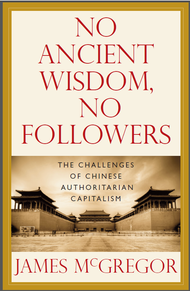As Apple faced criticism in Washington for not paying more in taxes, Ireland defended its low rates that made it easy for multinational corporations to do business there, instead blaming “loopholes” in other European countries for enabling companies like Apple to avoid taxation.
Deputy Prime Minister Eamon Gilmore of Ireland told reporters in Brussels on Tuesday that his government supported efforts to close “loopholes” in corporate taxation, but said these did not stem from Irish taxation policy.
“They’re issues that arise from the taxation system in other jurisdictions, and that’s an issue that has to be addressed first of all in those jurisdictions, and secondly, insofar as there is an international dimension to this, it needs to be tackled by having robust international agreements, and Ireland very much is in favor of that,” he said.
Prime Minister David Cameron of Britain has said corporate taxes will be a main focus of the Group of 8 meeting that he is scheduled to convene next month at Lough Erne in Northern Ireland.
“We need a truly global solution,’’ Mr. Cameron wrote in a letter to Herman Van Rompuy, president of the European Council, in April.
“As I am sure you will agree, the path to reform starts with the basic recognition that current global tax rules do not reflect the modern and globalized economy that our citizens live and trade in.”
In February, at a meeting of the Group of 20 in Moscow, the governments of Britain, France and Germany pledged to work together to update international tax guidelines for the Internet era, in an effort to collect more tax revenue from foreign companies.
“Globalization requires rules,” Finance Minister Wolfgang Schäuble of Germany told reporters at the time. “Multinational companies should not have the possibility of using globalization as a means to exploit tax loopholes.’’
Ireland has a long tradition of luring American companies with tax incentives. In 1959, it created a low-tax business development zone around Shannon Airport in western Ireland, which was used at the time as a refueling stop for trans-Atlantic jetliners.
The country’s attractiveness as a pied-à-terre for American companies doing business in Europe grew after Ireland joined the European Economic Community, the precursor to the European Union, in 1973. Hundreds of American technology companies set up their European headquarters in Ireland in subsequent decades, taking advantage of an English-speaking work force and low taxes.
Under European Union law, companies based in one European country are permitted to do business across the 27-nation bloc, and Internet companies, in particular, have taken advantage of that rule to book their European revenue in the country offering the greatest tax benefits; for many, that is Ireland.
Ireland’s corporate tax rate is 12.5 percent, less than half the level in many larger European countries. American companies with their European headquarters in Ireland often pay considerably less than this on their European earnings because of accounting techniques that permit them to shift revenue to subsidiaries in offshore tax havens — as Apple has been accused of doing in a report prepared by Congressional investigators.
“Back in the 1970s and ‘80s, when Ireland was a poor state desperately trying to attract investment, tax was a weapon that others weren’t using,” said Richard Murphy, founder of the Tax Justice Network, a group that campaigns against tax havens. “So Ireland developed a twofold strategy: low rates and not too many questions. It became the conduit state of choice.”
While Ireland misses out on some tax revenue, analysts say its economy more than makes up for this in other ways, including the tens of thousands of jobs that American technology companies have created there – and the income taxes that well-paid programmers and executives contribute to the Irish treasury. Apple alone employs more than 4,000 workers in Ireland, while Google employs more than 2,500 there.
Article source: http://www.nytimes.com/2013/05/22/business/global/ireland-defends-attractive-tax-rates.html?partner=rss&emc=rss

